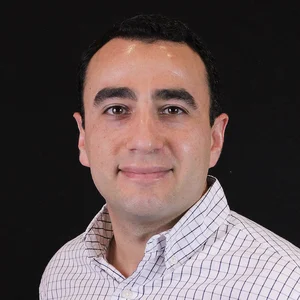
Aldevron Breakthrough Blog
Combining Resources to Streamline and Standardize Therapies
November 23, 2022 / by Basam Barkho, Ph.D.
Academics and manufacturing making processes better
Witnessing firsthand the growth of cell and gene therapy to progress more programs to the bedside is an exciting time in the biotechnology industry, particularly with new partnership approaches being developed. I was able to get an overview of one particular partnership during a podcast featuring Tom Foti, VP of Protein Business unit at Aldevron, and Kris Saha, Ph.D., Associate Professor of Biomedical Engineering, Medical History and Bioethics at the University of Wisconsin.
This podcast from BioInsights describes how a partnership between academics and industry is helping drive cell and gene therapies from discovery research to product commercialization.
First impressions
A key takeaway I had from the discussion was how this collaborative process builds on each partner’s strengths. It begins in academia at multidisciplinary centers, combining the resources of strategic partners in science, clinical, engineering and manufacturing. Then, the research is transferred to a manufacturer that uses it to produce high-quality reagents supporting clinical trials. Both Foti and Saha pointed out how research tools developed in Saha’s lab, combined with Aldevron’s manufacturing technology, can help provide a streamlined path to curative therapies using more efficient and safer clinical material.
What does this mean?
Coming from the viewpoint of years in academics, to me it seems these relationships have been far too limited over the last decade. During this time, the burden for researchers developing the drugs, methods, and processes for cell and gene therapy innovations, would reach a standstill when advancing into the clinical development phase.
Generally, for drug development, it is recommended that investigators and their academic institution make financial arrangements through investors or sponsors to conduct studies. However, that financial cost can be limited by building relationships between academics and industry to use the resources and infrastructure available from corporations.
Financial responsibility is only the start of the issues the academic field may experience when transitioning to the pre-clinical stage, with additional burdens such as staffing needs, logistics management and timeline structures coming as a program moves ahead.
Over the last 10 years or so, the model of science parks and research incubators, where academia and industry can collaborate together, has been growing. This is an advantage when determining proof of concept for drug discovery so it can advance closer to pre-clinical trials. However, it still may be difficult to overcome the financial burden required to continue the program further through the clinical phases.
Enter the CDMOs
Contract development and manufacturing companies (CDMOs), such as Aldevron, offer a range of products and services that support research developed in laboratories, allowing them to advance into the clinical setting. As described by Saha, “It is resource-intensive, and requires reagents, expertise, and collaboration with industry.”
That strong collaboration between academic and industry establishes a network of drug and method development from investigation to the commercialization process. ¬¬In exchange for the research provided, CDMOs can offer the resources and workflow to advance the proof of concept to clinical support for potential submission for an IND.
Foti points out that, “One of the ways we as an industry partner help with that is on the quality and regulatory standpoint. We are trying to enable researchers by having drug master files for our reagents.”
He also emphasizes that nurturing academic programs and leading them through the critical early stages helps them reach patients. “We think about the value across the entire scientific chain from technologies enabling the original sequence of what you want to correct,” Foti says, “all the way to manufacturing for the patient in a fast and standardized way.”
Listen to the full podcast to learn details and practical examples of how genome editing tools and non-viral delivery system are provided through the partnership of academics and industry, such as the collaboration between the University of Wisconsin and Aldevron.
- Want to learn more about this topic? Contact Basam Barkho
- Download a podcast transcript
- Have a topic to suggest? Let us know

